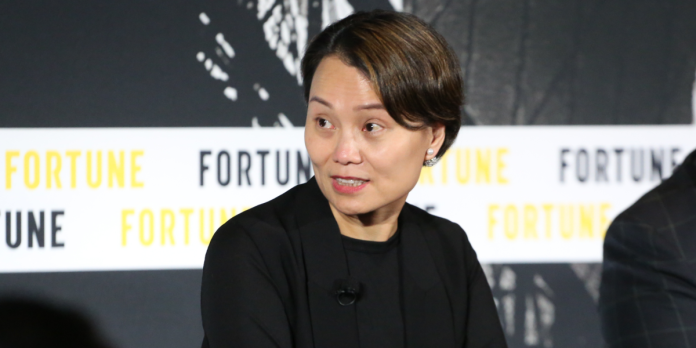At Yum China, cozying up to your boss in the hopes of winning affection and landing a promotion is futile—because even if they wanted to get you that step up the ladder, they can’t.
Managers aren’t allowed to promote direct reports at the $17.9 trillion company behind KFC, Taco Bell, and Pizza Hut in China, CEO Joey Wat revealed in an interview at Fortune’s Global Forum conference in New York.
“The boss sponsors someone to be promoted and we have a committee with very senior people, including myself, to sift through every single promotion,” Wat, who is ranked 63 on Fortune’s Most Powerful Women 2024 list, said.
Why is this CEO making time in her busy schedule to personally sign off on title changes and raises for her 400,000-strong workforce? To ensure that the best people in the company climb the ladder—not one manager’s favorite employee.
“For our company’s meritocracy—and when it comes to selecting talent and also training—our focus is on being fair and open, but tough,” Wat explained.
“We believe for talented people, the most important thing they’re looking for is to be seen and to be recognized and we like to create that platform for talent to be seen and to compete. So different departments can actually compete for the same talent,” Wat said.
“Once we make the decision, which is a collective decision, our obligation is to help that person to be successful,” she said, adding that the panel even put together an individualized development plan for newly promoted staffers. “We find it very motivating. Is a very tough but fair process.”
Global inclusivity push
Leaders globally have been pushing to promote their staff in more inclusive manners than their predecessors did—perhaps over drinks at the bar or on the golf course. Even across the Atlantic, a major insurance company in the U.K., Aviva, told its 22,000 strong workforce that senior white male new hires must be personally approved by none other than its CEO Amanda Blanc.
Meanwhile, in the U.S., other CEOs on Fortune’s panel echoed that they’ve given the promotion process an inclusive makeover too.
Nathan Rosenberg, founder of the management consultancy Insigniam, said that his company now spells out exactly what it takes to land that step up.
“Obviously there’s a greatness to business, but we tried to make it as black and white as we could; This is what it takes to get promoted; This is what it takes to get bigger pay,” he said.
“If you hire good people and you give them a chance to excel and be committed to their success, the cream rises to the top—and it’s irregardless of race, religion, nationality or gender.”
The proof is in the pudding: Yum China’s workforce is 60% female, bucking the general trend in the country where some roles are still advertised as “men only.” The majority of managers at Insigniam are also women, Rosenberg said.
This session was presented by Insigniam. Discussion leaders included:
- Patrick Geraghty, President and CEO, GuideWell
- Javier Rodriguez , Chief Executive Officer, DaVita
- Nathan Rosenberg, Founder, Insigniam; Partner, Elixrr
- Joey Wat, Chief Executive Officer, Yum China
- Moderator: Matt Heimer , Executive Editor, Features, Fortune and Co-Chair, Fortune Global Forum


